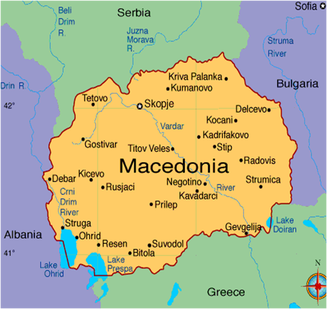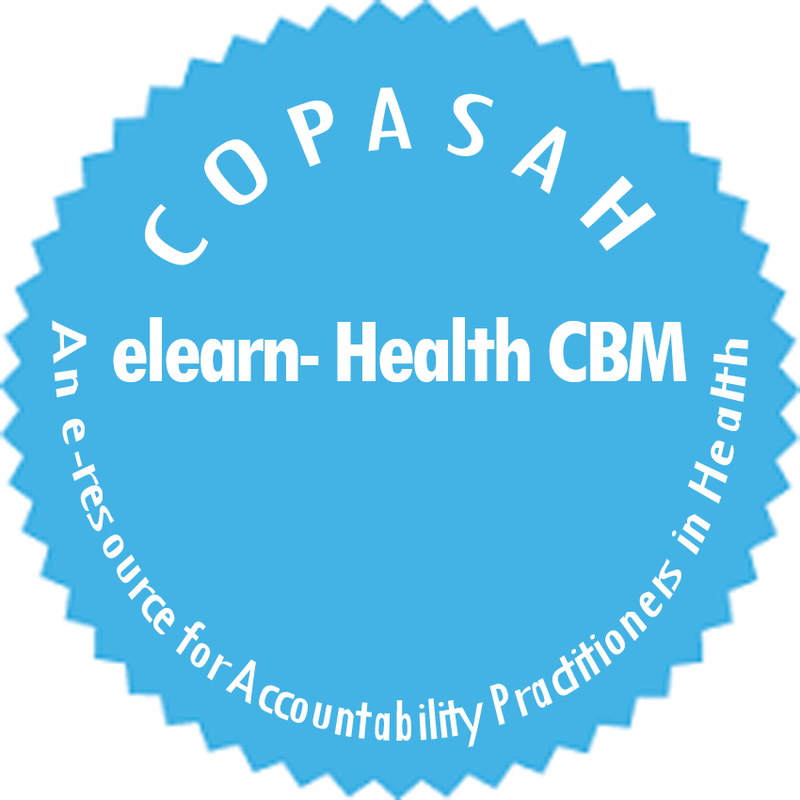
|
|
Social Audit of Ante-Natal Care Services among of Roma Women in
Macedonia
Macedonia
The social audit initiative of Association for Emancipation, Solidarity and Equality of Women (ESE), in association with KHAM and CDRIM, partner organizations, have worked on the issues of immunization of Roma children in Macedonia. This has led women to question the health service providers about the insufficient coverage of the Roma community in immunisation. This article provides details of the social audit tool used to demand accountability pf public nurses to provide ante-natal care to Roma women.
|
BORJAN PAVLOVSKI
|

The journey so far
Two organisations, KHAM and CDRIM with technical assistance from ESE initiated social audit work on the issue of immunization of Roma children, after holding training workshop for social audit in September 2013. After the training workshop, KHAM and CDRIM in a process facilitated by ESE made a plan for social audit, wherein it was decided that the patronage (community) nurse’s visits to Roma women will be audited in the process. The patronage nurses are required to fill diaries on daily basis in which they record the visits made to the families/women and the purpose of the visit. It was thus proposed that copies of the diaries of the nurses will be obtained and the information on records of these diaries will be cross-checked with the Roma families/women visited by the nurse, to confirm whether they were really visited by the nurse. Besides, the aim of the initiative was to assess the satisfaction level of women and families regarding the services provided by the nurse during the visit.
Gathering needed documents
For the purpose, requests were made to access public information i.e. to obtain copies of the nurse’s diaries from Primary Health Care centers (PHCCs). The first obstacle encountered was the negative response one got from all the PHCCs. Copies of the diaries were not provided from the PHCCs as it was outlined that the diaries hold personal data about the patients/beneficiaries of patronage nurse’s services. Following this crisis the partner organizations arranged meetings with the representatives from Primary Health Care Centers and explained to them the purpose of the data collection and assured that information will not be misused. Since the representatives were on managerial positions, the strategy was to explain to them that this will also be for their benefit, as it will provide direct insights on the work of patronage nurse’s, whether they are conducting their work as it is stated in the diaries. This approach worked for the Primary Health Care Centers from the municipalities where KHAM works. The PHCC representatives gave the copies of the nurse’s diaries to the representatives of KHAM. The team from CDRIM firstly obtained the documents which had the information that gynecologists send to the Primary Health Care Center. This information on each pregnant woman registered with the municipality of Shuto Orizari, the patronage nurses were required to visit these women during pregnancy were details that added vital insights. These details were significant as experiences from the community work done so far suggested that patronage nurses very rarely visited women during pregnancy.
Conducting the audit and its use in advocacy
After the copies of the diaries were obtained, the representatives of KHAM went to the community and asked the women whether they were visited by the patronage nurses as was stated in the diaries. They were also asked whether sufficient number of visits were conducted according to the Program for Active Health Care of Mothers and Children (nine visits in the period during pregnancy and one year after the delivery). The social audit revealed that there is a mismatch between the data written in the nurse’s diaries and the reality in the field, as some of the visits stated in the diaries were not made at all. None of the Roma women included in the audit process were visited nine times as prescribed in the Program. After the findings from the audit, KHAM organized a public event inviting the patronage nurses and the head of the departments and Roma community including women who were included in the audit. On the public event the findings from the audit were presented and the Roma women directly asked the service providers as to why they are not visited nine times as given in the Program. In the public event the nurses and the head of the departments promised that the situation will be improved. So far, only a small progress has been made on this issue. Roma women continue to have insufficient coverage from the patronage nurses.
Representatives from CDRIM started the audit with the documents sent from the primary level gynecologists to the Primary Health Care Centers containing information on pregnant women from the municipality of Shuto Orizari. These were the first documents that they were able to obtain. When the community women were visited it revealed that none of these women were visited by the patronage nurses during their pregnancy. The findings were to be shared in a meeting with the patronage nurses and the head nurse of the department. However, the head nurse did not turn up for the meeting. When the findings were presented to the patronage nurses, they gave excuses like some of the pregnant women had miscarriages. When they were confronted that the findings revealed that not a single woman was visited during the pregnancy, they stated reasons such as the the lack of patronage nurses-staff in the Primary Health Care Center in Shuto Orizari. They also stated the existing staff is overburdened as Shuto Orizari municipality is among municipalities with highest birth rate in Macedonia, and only 3 patronage nurses are there in the PHCC and therefore unable to visit all the women. When the copies of documents of patronage nurse visits to women after delivery (the plans for visits from the patronage nurses and the documents with information from the Maternity wards) were obtained, the team of CDRIM conducted social audit on basis of these documents. The team visited the Roma mothers who had given birth in the past 12 months. The findings revealed that Roma mothers were not visited and the notes in the diaries just listed the plans of visits by the patronage nurses. On an average the women were visited one to two times, which is less that the prescribed 9 visits in the Program. The patronage nurses were again confronted on the basis of the findings from the audit. Following these findings and the information obtained from the patronage nurses, it became evident that there is a requirement to employ additional patronage nurses in the Primary health care center in Shuto Orizari. This became one of the main advocacy goals at the local and national level in 2014. However, despite all advocacy efforts the Primary Health Care Center in Shuto Orizari is still being run by only three patronage nurses.
Plans for expanding the social audit
The organizations are in the process of expanding the social accountability work on the issue of coverage of Roma women with preventive gynecological services provided by the Program for early detection of malignant diseases – component for screening for cervical cancer. Currently community inquiry is being conducted on this issue, and the social audit work will be carried out by next year.
Two organisations, KHAM and CDRIM with technical assistance from ESE initiated social audit work on the issue of immunization of Roma children, after holding training workshop for social audit in September 2013. After the training workshop, KHAM and CDRIM in a process facilitated by ESE made a plan for social audit, wherein it was decided that the patronage (community) nurse’s visits to Roma women will be audited in the process. The patronage nurses are required to fill diaries on daily basis in which they record the visits made to the families/women and the purpose of the visit. It was thus proposed that copies of the diaries of the nurses will be obtained and the information on records of these diaries will be cross-checked with the Roma families/women visited by the nurse, to confirm whether they were really visited by the nurse. Besides, the aim of the initiative was to assess the satisfaction level of women and families regarding the services provided by the nurse during the visit.
Gathering needed documents
For the purpose, requests were made to access public information i.e. to obtain copies of the nurse’s diaries from Primary Health Care centers (PHCCs). The first obstacle encountered was the negative response one got from all the PHCCs. Copies of the diaries were not provided from the PHCCs as it was outlined that the diaries hold personal data about the patients/beneficiaries of patronage nurse’s services. Following this crisis the partner organizations arranged meetings with the representatives from Primary Health Care Centers and explained to them the purpose of the data collection and assured that information will not be misused. Since the representatives were on managerial positions, the strategy was to explain to them that this will also be for their benefit, as it will provide direct insights on the work of patronage nurse’s, whether they are conducting their work as it is stated in the diaries. This approach worked for the Primary Health Care Centers from the municipalities where KHAM works. The PHCC representatives gave the copies of the nurse’s diaries to the representatives of KHAM. The team from CDRIM firstly obtained the documents which had the information that gynecologists send to the Primary Health Care Center. This information on each pregnant woman registered with the municipality of Shuto Orizari, the patronage nurses were required to visit these women during pregnancy were details that added vital insights. These details were significant as experiences from the community work done so far suggested that patronage nurses very rarely visited women during pregnancy.
Conducting the audit and its use in advocacy
After the copies of the diaries were obtained, the representatives of KHAM went to the community and asked the women whether they were visited by the patronage nurses as was stated in the diaries. They were also asked whether sufficient number of visits were conducted according to the Program for Active Health Care of Mothers and Children (nine visits in the period during pregnancy and one year after the delivery). The social audit revealed that there is a mismatch between the data written in the nurse’s diaries and the reality in the field, as some of the visits stated in the diaries were not made at all. None of the Roma women included in the audit process were visited nine times as prescribed in the Program. After the findings from the audit, KHAM organized a public event inviting the patronage nurses and the head of the departments and Roma community including women who were included in the audit. On the public event the findings from the audit were presented and the Roma women directly asked the service providers as to why they are not visited nine times as given in the Program. In the public event the nurses and the head of the departments promised that the situation will be improved. So far, only a small progress has been made on this issue. Roma women continue to have insufficient coverage from the patronage nurses.
Representatives from CDRIM started the audit with the documents sent from the primary level gynecologists to the Primary Health Care Centers containing information on pregnant women from the municipality of Shuto Orizari. These were the first documents that they were able to obtain. When the community women were visited it revealed that none of these women were visited by the patronage nurses during their pregnancy. The findings were to be shared in a meeting with the patronage nurses and the head nurse of the department. However, the head nurse did not turn up for the meeting. When the findings were presented to the patronage nurses, they gave excuses like some of the pregnant women had miscarriages. When they were confronted that the findings revealed that not a single woman was visited during the pregnancy, they stated reasons such as the the lack of patronage nurses-staff in the Primary Health Care Center in Shuto Orizari. They also stated the existing staff is overburdened as Shuto Orizari municipality is among municipalities with highest birth rate in Macedonia, and only 3 patronage nurses are there in the PHCC and therefore unable to visit all the women. When the copies of documents of patronage nurse visits to women after delivery (the plans for visits from the patronage nurses and the documents with information from the Maternity wards) were obtained, the team of CDRIM conducted social audit on basis of these documents. The team visited the Roma mothers who had given birth in the past 12 months. The findings revealed that Roma mothers were not visited and the notes in the diaries just listed the plans of visits by the patronage nurses. On an average the women were visited one to two times, which is less that the prescribed 9 visits in the Program. The patronage nurses were again confronted on the basis of the findings from the audit. Following these findings and the information obtained from the patronage nurses, it became evident that there is a requirement to employ additional patronage nurses in the Primary health care center in Shuto Orizari. This became one of the main advocacy goals at the local and national level in 2014. However, despite all advocacy efforts the Primary Health Care Center in Shuto Orizari is still being run by only three patronage nurses.
Plans for expanding the social audit
The organizations are in the process of expanding the social accountability work on the issue of coverage of Roma women with preventive gynecological services provided by the Program for early detection of malignant diseases – component for screening for cervical cancer. Currently community inquiry is being conducted on this issue, and the social audit work will be carried out by next year.
|
|
ABOUT AUTHORS
Dr. Borjan Pavlovski is a medical doctor and has done his Masters of Public Health, at the Medical faculty in Skopje, Republic of Macedonia. Dr. Pavlovski is the Program coordinator of Public health with Association for Emancipation, Solidarity and Equality of Women (ESE) in Macedonia – ESE. His interests include public health, especially focused on improvement of health status, health rights and access to health care services of marginalised groups of population, including Roma minority, especially women. Dr. Pavlovski also works for the improvement of transparency and accountability of the Government, especially in the health care sector.
To know more about the work of ESE visit www.esem.org.mk and www.healthrights.mk
Dr. Borjan Pavlovski is a medical doctor and has done his Masters of Public Health, at the Medical faculty in Skopje, Republic of Macedonia. Dr. Pavlovski is the Program coordinator of Public health with Association for Emancipation, Solidarity and Equality of Women (ESE) in Macedonia – ESE. His interests include public health, especially focused on improvement of health status, health rights and access to health care services of marginalised groups of population, including Roma minority, especially women. Dr. Pavlovski also works for the improvement of transparency and accountability of the Government, especially in the health care sector.
To know more about the work of ESE visit www.esem.org.mk and www.healthrights.mk







